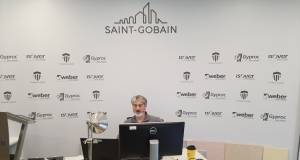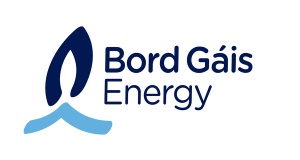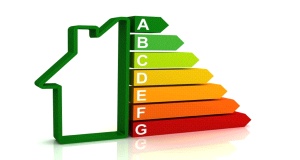- Waste
- Posted
Gormley's burning issues
Environment minister John Gormley has been told that incineration is vital to Ireland meeting its waste management targets.
Incineration is essential in order to meet targets for waste management. That is the message Minister for the Environment John Gormley has been given by his officials.
Gormley, who has long been an opponent of incineration, has been told the ‘‘use of thermal treatment with energy recovery, in line with best practice in the EU... [is] key to meeting the targets’’, according to briefing papers prepared for the new minister by his officials and seen by The Sunday Business Post.
In the coming months, Gormley will try to reverse that policy as he embarks on a review of waste management policy, agreed in the Programme for Government.
However, he will have to change the established opinion, not just of his officials, but of the many local government officials who have direct responsibility for waste policy, and who are convinced there is no alternative to some measure of incineration.
Local objections and the glacial speed of the planning process have stalled the progress of several incineration projects around the country.
One such project is planned for Gormley’s own constituency of Dublin South East - indeed, it is near to Gormley’s home in Ringsend - and he is likely to clash with the local authority if it secures full planning approval.
Many local authority managers favour incineration, as it represents a relatively quick and easy way out of the landfill crisis. Ireland has traditionally sent most of its waste to landfill - i.e. buried it beneath ground - a practice which EU environmental legislation wants dramatically reduced.
Despite increased levels of recycling, which the department boasts as being ‘‘ahead of countries regarded as more advanced than us in terms of environmental protection’’, Ireland needs to double the proportion of waste it currently diverts from landfill by 2010. If it does not do so, it will face massive fines.
Waste management is one of several pressing issues which will be vying for the new minister’s attention.
One of the reasons for priority in this area is the demanding targets set by EU legislation and Ireland’s previous tardiness in adhering to environmental regulations on time.
This traditional slackness is evidenced by the number of infringement proceedings the European Commission is taking against Ireland for failing to comply with environmental legislation.
There are now 37 cases at various stages of legal proceedings, although the documents note that this is a reduction from 49 at the end of 2005.
There are eight outstanding actions relating to water quality, where a major cause of concern identified by Gormley’s officials is the continuing situation in Galway, where people have to boil their water before consumption.
Another sensitive issue is the introduction of water metering for non-domestic users, which the department wants to complete this year.
However, officials warn that some aspects of its introduction will have to handled ‘‘sensitively and pragmatically’’, identifying schools and some farms as examples.
Farmers will be pleased, however, to have won a derogation from the nitrates directive, which restricted the amount of fertiliser which could be spread on farmland.
More than 10,000 farmers are to be exempted from some provisions of the legislation, and the documents express the hope that this will not endanger EU agricultural grants.
Among the other priorities in the autumn will be the establishment of a climate change commission. This is likely to be given much ministerial attention.
The documents insist Ireland is on target to meet its Kyoto targets although, as Gormley repeatedly pointed out in opposition, this is only because of the government’s decision to buy additional carbon credits - in effect, allowing Ireland to emit more carbon dioxide.
Elsewhere, the documents put the cost of these carbon credits, over the period of the new National Development Plan, at €270 million.
The Department of the Environment alsohas responsibility for housing, and the briefing documents outline officials’ thinking on the changing circumstances in the market.
The general attitude to recent fall-off in house prices is phlegmatic.
‘‘Recent price cooling can be seen as partly a correction for inordinate increases in 2005/06,” the officials observed.
However, the department did expect that the stamp duty changes - which had been promised but not implemented when the briefings were written - would have a greater impact than turned out to be the case.
‘‘Expected stamp duty changes should cause a short-term surge in demand and prices,” they noted.
Other forthcoming developments in the housing sector that the minister was briefed on include plans to broaden the tenant purchase scheme, which enables local authority tenants to buy their houses.
More mixed tenure projects are also planned. Detailed preparation is being made for a new regime of vehicle registration tax, intended to promote the use of low-emission vehicles.
While this was a commitment of the previous government - it was announced on Budget Day last year - the plans are likely to be given special emphasis by Gormley. The process is referred to in briefing documents as ‘‘the greening of VRT’’. Other tax-related proposals are likely to be brought forward by Gormley.
Although most property-based tax incentives – of which the Green Party was a trenchant critic in opposition - are scheduled to be ended in 2008, the department is preparing proposals for new schemes which would promote the National Spatial Strategy, the often ignored plan for stimulating development outside Dublin.
According to the officials, ‘‘consideration will be given to the selective application of new tax incentive measures in areas of evident market failure, particularly within National Spatial Strategy gateways and hubs’’.
The spatial strategy identified some towns as ‘gateways’ or ‘hubs’, according to their function to devolve development away from the Dublin area.
However, the strategy has often been ignored by government, not least when it was drawing up its plans for decentralisation.
In addition to the possible tax breaks, the department is also to launch a ‘‘gateway innovation fund’’ - a €300 million fund available to support ‘‘joined-up strategies and action at gateway level by helping fund-targeted strategic projects that can trigger the accelerated developments of the gateways and their wider regions’’.
Once local authorities and businesses figure out what this means, they will surely be seeking the minister’s early attention.
Related items
-
 Saint Gobain launches online technical academy
Saint Gobain launches online technical academy -
 Bord Gáis calls it quits on home insulation business
Bord Gáis calls it quits on home insulation business -
 Two thirds of new Irish homes fail energy efficiency rules
Two thirds of new Irish homes fail energy efficiency rules -
 Brian Motherway named new chief executive of SEAI
Brian Motherway named new chief executive of SEAI -
 Government launches public consultation on building control
Government launches public consultation on building control -
 Fuel poverty finally taken seriously - Energy Action
Fuel poverty finally taken seriously - Energy Action

